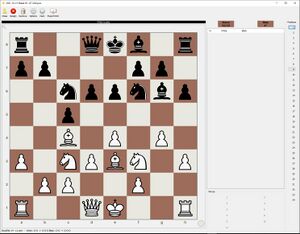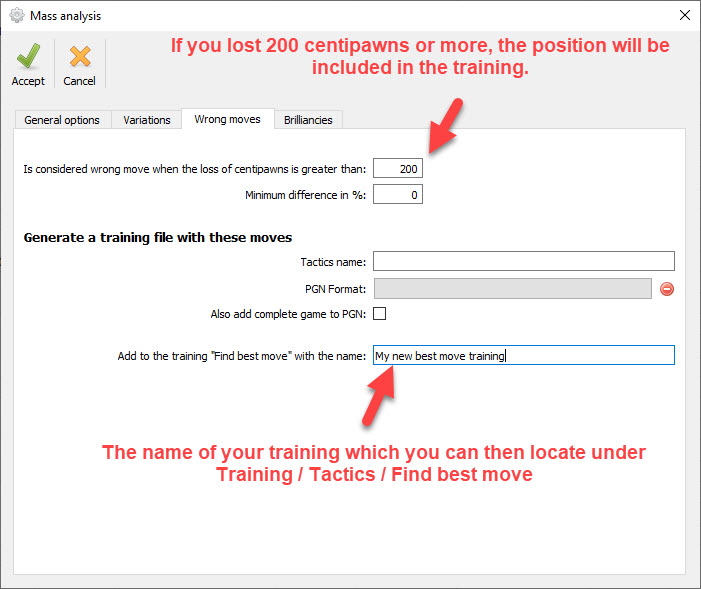Difference between revisions of "Find best move"
| Line 4: | Line 4: | ||
You might be familiar with the feature 'learn from your mistakes' on Lichess. However, this feature is usually limited to only one game. | You might be familiar with the feature 'learn from your mistakes' on Lichess. However, this feature is usually limited to only one game. | ||
In Lucas Chess, you you can create a [[Database|database]] with your own games. You can then either analyse a single game or use the great feature called mass analysis which lets you analyse a large number of games with an engine: | In Lucas Chess, you you can create a [[Database|database]] with your own games. You can then either analyse a single game or use the great feature called mass analysis which lets you analyse a large number of games with an engine. Under "wrong moves" you can generate your own trainings based on your mistakes: | ||
[[File:Mass_analysis_for_bmt.jpg|screenshot]] | [[File:Mass_analysis_for_bmt.jpg|screenshot]] | ||
Revision as of 00:22, 16 October 2021
This is one of the most useful learning features of Lucas Chess - you have to find the best move for given positions (or a move that is within a threshold of the best move that you can set). And, for example, these positions can be generated from the mistakes in your own games - a great way to improve your chess.
You might be familiar with the feature 'learn from your mistakes' on Lichess. However, this feature is usually limited to only one game. In Lucas Chess, you you can create a database with your own games. You can then either analyse a single game or use the great feature called mass analysis which lets you analyse a large number of games with an engine. Under "wrong moves" you can generate your own trainings based on your mistakes:

